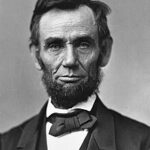President Abraham Lincoln’s administration implemented sweeping restrictions on press freedom during the Civil War. Lincoln press suppression became one of the most controversial aspects of his presidency. The administration closed over 300 opposition newspapers between 1861-1865.
The Crackdown Begins
Lincoln authorized military commanders to shut down newspapers deemed disloyal. The Baltimore Sun, Chicago Times, and New York World faced temporary closures. Federal marshals arrested editors and publishers without formal charges. Military tribunals replaced civilian courts for press-related cases. ⚠️ These actions violated traditional First Amendment protections.
Justification and Methods
Lincoln argued wartime necessity justified extraordinary measures. Opposition papers allegedly encouraged desertion and undermined recruitment efforts. Some publications openly supported Confederate cause or called for immediate peace. The administration used postal restrictions to limit newspaper distribution. 📊 Over 13,000 civilians faced military arrest during Lincoln’s presidency.
Constitutional Debate
Democratic politicians condemned Lincoln press suppression as tyrannical overreach. Even some Republicans questioned the constitutionality of these measures. Supreme Court cases like Ex parte Milligan later addressed wartime civil liberties. Lincoln maintained that constitutional protections couldn’t survive if the Union collapsed.
Impact:
Lincoln’s press restrictions created lasting constitutional precedents and political divisions that extended far beyond the Civil War era.
Immediate Political Consequences
Democratic opposition intensified after newspaper closures began. The 1862 midterm elections saw Republican losses in key states. 🔥 Anti-Lincoln sentiment grew in border states and urban areas. Opposition press portrayed Lincoln as a dictator destroying American freedoms. Political cartoons depicted him trampling the Constitution underfoot. These attacks damaged Lincoln’s reputation among moderate voters.
Long-term Constitutional Impact
Supreme Court decisions in the 1860s established important civil liberties precedents. Ex parte Milligan (1866) limited military tribunals during peacetime. The case affirmed that constitutional rights remain intact during wartime. Future presidents cited Lincoln’s actions to justify their own press restrictions. 📉 Public trust in government declined among Democratic constituencies. Press freedom advocates used Lincoln press suppression as a cautionary example.
Historical Assessment
Modern historians remain divided on Lincoln’s media policies. Some argue wartime conditions justified temporary constitutional restrictions. Others contend Lincoln set dangerous precedents for executive overreach. 🌍 International observers criticized American hypocrisy regarding democratic values. European newspapers mocked American claims about press freedom. The controversy influenced post-war Reconstruction policies and civil rights debates. These wartime precedents affected press freedom discussions through both World Wars.
